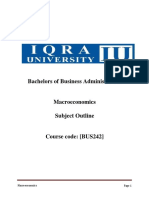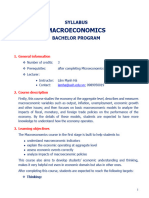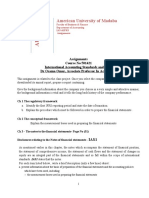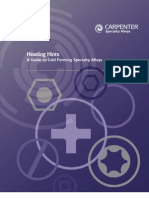Karl E. Case, Ray C. Fair, Sharon E Oster, Principles of Macroeconomics, Pearson, 12th Edition, Global Edition 2017
Uploaded by
MEO lalandKarl E. Case, Ray C. Fair, Sharon E Oster, Principles of Macroeconomics, Pearson, 12th Edition, Global Edition 2017
Uploaded by
MEO lalandAmerican University of Madaba
Macroeconomics
Course Syllabus
Spring 2020
Faculty: Fayez Tayem, Associate Professor
Office Hours: Monday to Thursday: 11:15 – 1:00
Office: BA-S33
Email: f.tayem@aum.edu.jo
Textbook
Karl E. Case, Ray C. Fair, Sharon E Oster, Principles of Macroeconomics, Pearson, 12th
Edition, Global Edition; 2017
Other Texts
Taylor, Timothy. Principles of Economics. Houston, TX: OpenStax College, March 2014.
Campbell R. McConnell, Brue, and Flynn, Macroeconomics, 20th edition, McGraw-Hill, 2015.
Course Description: An analysis of the economy as a whole including measurement and
determination of Aggregate Demand and Aggregate Supply, national income, inflation, and
unemployment. Other topics include fiscal policy and monetary policy. This course will cover
the area of economics commonly defined as macroeconomics.
The main goal of macroeconomics is to gain a better understanding of the causes of, and
remedies for, UNEMPLOYMENT and INFLATION, as well as the factors that affect
ECONOMIC GROWTH (unemployment, inflation, and economic growth).
Intended Learning Outcomes (ILOs):
Upon completion of the course the student will have demonstrated:
1. Explain the role of scarcity, specialization, opportunity cost and cost/benefit analysis in
economic decision-making.
2. Identify the determinants of supply and demand; demonstrate the impact of shifts in both
market supply and demand curves on equilibrium price and output.
3. Define and measure national income and rates of unemployment and inflation.
4. Identify the phases of the business cycle and the problems caused by cyclical fluctuations in
the market economy.
5. Define money and the money supply; describe the process of money creation by the banking
system and the role of the central bank.
6. Construct the aggregate demand and aggregate supply model of the macro economy and use it
to illustrate macroeconomic problems and potential monetary and fiscal policy solutions.
7. Define economic growth and identify sources of economic growth.
Methods of instruction: Lectures – exercises - Group discussion
Assessment Methods: Homework - Class participation – Examinations
Grading:
- First Midterm Exam 20%
- Second Midterm Exam 30%
- Homework and participation 10%
- Final exam 40%.
Your Participation grade will be based upon:
Class Attendance
Class Participation
Class Behavior
Classroom Rules of Conduct: Punctuality is essential. The use of mobile phone is prohibited
in class. To pass the course, the student should attend at least 85% of the classes. University
rules will be applied in case of misconduct.
Ethics: Ethical behavior in the classroom is required of every student. Students are also expected
to identify ethical policies and practices relevant to course topics.
Academic Dishonesty: Academic dishonesty will be dealt with in the strictest possible manner
as per the University guidelines. Students are expected to exhibit honesty in all work. Students
found cheating are subject to the penalties outlined in the Policies and Procedures section of the
University Catalog.
Tentative Course Outline
The instructor reserves the right to alter course content and/or adjust the pace to accommodate class
progress. Students are responsible for keeping up with all adjustments to the course calendar.
2 Ch.5 Concepts and Problems in Macroeconomics
3 Ch.6 Measuring National Output and National Income
3 Ch. 7 Unemployment
4 Ch. 8 Inflation
5 Ch. 9 The Government and Fiscal Policy
6 Ch. 10 Money, the Federal Reserve, and the Interest Rate
7 Ch. 11 The Determination of Aggregate Output, the Price Level, and
Interest Rate
You might also like
- Instant Download Essentials of Microeconomics 2nd Edition Bonnie Nguyen Andrew Wait PDF All Chapters100% (4)Instant Download Essentials of Microeconomics 2nd Edition Bonnie Nguyen Andrew Wait PDF All Chapters62 pages
- Immediate download Essential Statistics for Public Managers and Policy Analysts Wang ebooks 2024100% (3)Immediate download Essential Statistics for Public Managers and Policy Analysts Wang ebooks 202437 pages
- Citizens and Markets - A New Role For Citizens in Public Procurement100% (1)Citizens and Markets - A New Role For Citizens in Public Procurement142 pages
- CS 6290: High-Performance Computer Architecture Spring 2009 Final ExamNo ratings yetCS 6290: High-Performance Computer Architecture Spring 2009 Final Exam14 pages
- طرزالعمل تبدیلی جواز صنفی قبلی به سند اجازه فعالیت جدیدNo ratings yetطرزالعمل تبدیلی جواز صنفی قبلی به سند اجازه فعالیت جدید2 pages
- CLTS Training Guideline - Dari Version - 20th April 2015100% (1)CLTS Training Guideline - Dari Version - 20th April 201555 pages
- The Nature of Fluids and The Study of Fluid Mechanics: By: Sarbaz BanozaiNo ratings yetThe Nature of Fluids and The Study of Fluid Mechanics: By: Sarbaz Banozai32 pages
- CLTS - Trainers Notes - Dari Version - Final 24th May 20150% (1)CLTS - Trainers Notes - Dari Version - Final 24th May 201543 pages
- Weather, Climate and Water in Afghanistan: A Visual Guide (Atlas) To The National Hydrology and Meteorology ServicesNo ratings yetWeather, Climate and Water in Afghanistan: A Visual Guide (Atlas) To The National Hydrology and Meteorology Services25 pages
- SAFI HABIBGUL Recommendation Letter From NangarharNo ratings yetSAFI HABIBGUL Recommendation Letter From Nangarhar1 page
- Questions of CRS Organization Afghanistan: Preparation byNo ratings yetQuestions of CRS Organization Afghanistan: Preparation by4 pages
- IDSP Numeracy & Basic Math Book in Pashto Language PDF100% (1)IDSP Numeracy & Basic Math Book in Pashto Language PDF50 pages
- (Translation) CRLP Project Operations Manual Annexes FINALNo ratings yet(Translation) CRLP Project Operations Manual Annexes FINAL79 pages
- Summer Internship Report: by Jamila Rezayee0% (1)Summer Internship Report: by Jamila Rezayee30 pages
- MECO 121-Principles of Macroeconomics-Daud A DardNo ratings yetMECO 121-Principles of Macroeconomics-Daud A Dard5 pages
- Macroeconomics Course Outline - Fall 2020No ratings yetMacroeconomics Course Outline - Fall 202010 pages
- American University of Madaba: Tax AccountingNo ratings yetAmerican University of Madaba: Tax Accounting3 pages
- Top 20 Global Companies in The World DSFDSFSDFSDFNo ratings yetTop 20 Global Companies in The World DSFDSFSDFSDF1 page
- Blending Aggregate Stockpiles: Senior/Graduate HMA CourseNo ratings yetBlending Aggregate Stockpiles: Senior/Graduate HMA Course17 pages
- Locaylocay, James A. Btled 1-He Child Adolescent and Development October 5,2020No ratings yetLocaylocay, James A. Btled 1-He Child Adolescent and Development October 5,20203 pages
- ISIS Multi Stage Thermostat Start/Stop 7 Day Programmable BrochureNo ratings yetISIS Multi Stage Thermostat Start/Stop 7 Day Programmable Brochure2 pages
- Affinity Laws For Variable Speed Centrifugal PumpsNo ratings yetAffinity Laws For Variable Speed Centrifugal Pumps4 pages
- Steps To Create Process - Control in GENTRAN - DIRECTORNo ratings yetSteps To Create Process - Control in GENTRAN - DIRECTOR8 pages
- Class Schedule Sy 2021 2022 Senior High SchoolNo ratings yetClass Schedule Sy 2021 2022 Senior High School2 pages
- Badri Engineering Corporation: One Stop Shop For All Your Industrial NeedsNo ratings yetBadri Engineering Corporation: One Stop Shop For All Your Industrial Needs2 pages
- Engineering Resume For Internship Example TemplateNo ratings yetEngineering Resume For Internship Example Template2 pages
- BSL Method Statememt For Lifting Thermal Tank - 1No ratings yetBSL Method Statememt For Lifting Thermal Tank - 14 pages





























































































